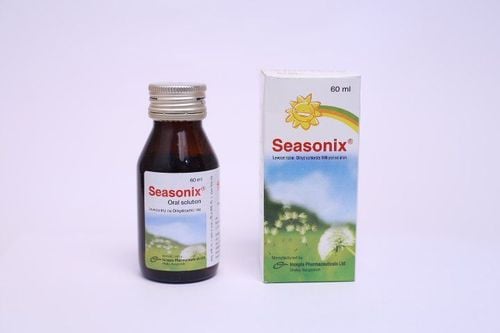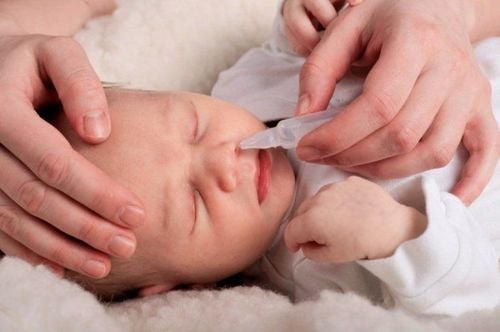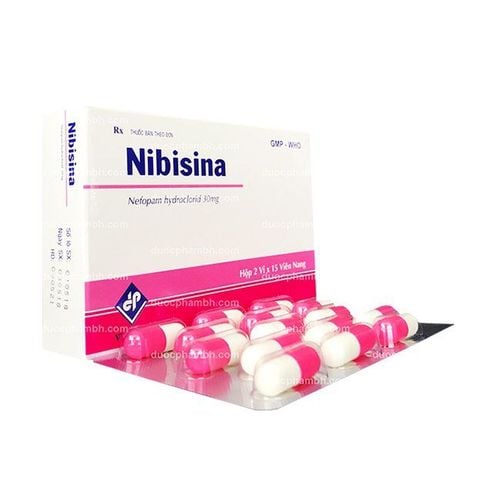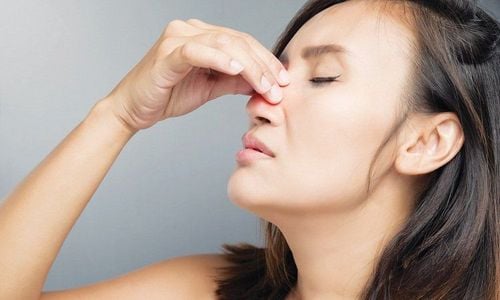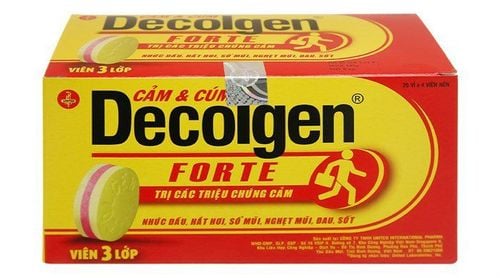This is an automatically translated article.
The article is professionally consulted by Master, Doctor Nguyen Nam Phong - Pediatrician - Department of Pediatrics - Neonatology, Vinmec Phu Quoc International General HospitalAllergic rhinitis in children is a condition in which the lining of the nose (the membrane lining the inside of the nose) becomes inflamed due to allergies to internal and external agents. When exposed to allergens, the body releases histamine, which causes itching, swelling, and fluid buildup on the inside of the nose. Allergic rhinitis is a very common disease in children, although not life-threatening, it makes children feel uncomfortable, recurrent, difficult to stop the disease.
1. Allergic rhinitis in children is on the rise
The typical climate of Vietnam is tropical monsoon climate. Our country has 4 seasons a year, but the most obvious are two typical climate seasons: hot and humid summer with southwest monsoon and cold and dry winter with northeast monsoon. Climate change many times a year is a condition for allergic rhinitis to develop. Along with that, the economic development in big cities affects the environment, the increasing environmental pollution will lead to an increase in the number of patients with allergic rhinitis, especially in children. children with weak resistance.2. The cause of allergic rhinitis in children is difficult to definitively treat
Allergic rhinitis in children is difficult to completely cure, often recurs because the pathogenic mechanism is related to allergies. Allergens are known as allergens, which are ubiquitous in the environment. Therefore, only when the allergen is completely eliminated, that is, when the child is no longer exposed to them, can the disease be cured. In fact, this is not easy to do.
This explains why allergic rhinitis in young children is often present year-round, is difficult to treat, and can be worse at certain times of the year. These allergens are usually very small, exist in the air, and it is difficult to determine exactly which type of allergen is causing your baby's rhinitis. Therefore, doctors must perform specialized allergy tests to help parents find the cause, thereby finding an effective treatment plan.
3. Treatment of allergic rhinitis in children
The goal of treatment for allergic rhinitis in young children is mainly to reduce symptoms to a minimum and to select appropriate drugs that are both effective and have few unwanted side effects. There are many medicines to treat allergic rhinitis in children, which are divided into 2 groups: oral drugs and topical drugs (inhaled or sprayed directly into the nose).
3.1. Group of oral medications Antihistamines for allergies (such as chlorpheniramine, loratadine, cetirizine) help relieve symptoms of nasal itching, runny nose, runny nose, watery eyes, but have no effect on treating nasal congestion; Antibiotics are used when the cause of the illness is related to an infection; Oral glucocorticoid drugs, such as prednisone, prednisolone, and dexamethasone, are only used in severe and chronic sinusitis. 3.2. Group of drugs for topical use Nasal drops or sprays containing 0.9% NaCl (also known as "physiological saline" solution) help clear and clean the nose. This is a medicine for allergic rhinitis suitable for children, infants, pregnant women and adults.
When the symptoms of allergic rhinitis in children appear for a long time and the parents do not know the cause, they should take them to a hospital or doctor's office specializing in paediatrics or allergies for a thorough examination. carefully, accurately diagnose the cause of the disease, screen for other possible allergic diseases, so that the baby is treated correctly and fully.
Ear, nose and throat specialist - Vinmec International General Hospital specializes in examining and treating common ENT diseases such as: rhinitis, allergic rhinitis, chronic rhinitis, tonsillitis, sore throat, tinnitus ear, non-allergic rhinitis, throat cancer; tumors of the head, face and neck, congenital malformations of the ear, nose and throat area by common surgical methods.
In addition, parents should also add some supporting foods containing lysine, essential micro-minerals and vitamins such as zinc, chromium, selenium, B vitamins,... The need for nutrients at the same time supports the immune system, enhances resistance, reduces the risk of upper respiratory tract infections, bronchitis, flu.
Please regularly visit Vinmec.com website and update useful information to take care of your baby and family.
Please dial HOTLINE for more information or register for an appointment HERE. Download MyVinmec app to make appointments faster and to manage your bookings easily.





